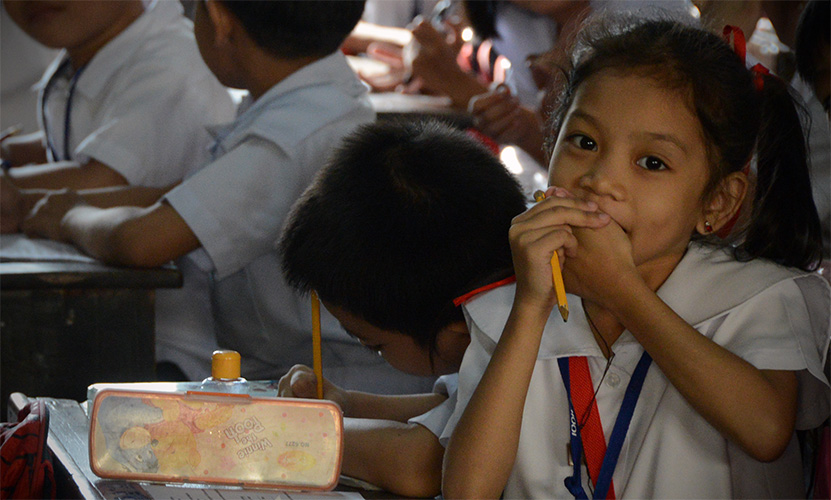Senator Win Gatchalian has filed a bill that will strengthen the involvement of local government units (LGUs) in providing inclusive and quality education, a move that will boost the education sector’s efforts to ‘build back better’ from the COVID-19 pandemic.

Senate Bill No. 1579 or the 21st Century School Boards Act amends Republic Act 7160 or the Local Government Code of 1991 to involve more stakeholders in local school boards to increase their functions and encourage every member of the local community in basic education governance.
The proposed measure also mandates local school boards to introduce interventions for continued learning delivery in times of calamities and emergencies that disrupt classes.
“Nais nating patatagin ang mga local school boards dahil sila ay katuwang natin sa pagtugon sa pangangailangan ng ating mga guro at mag-aaral. Ang pagpapatatag sa mga local school boards ay isang hakbang upang mapalawig natin ang papel ng ating mga komunidad sa pagbibigay ng dekalidad na edukasyon sa ating mga kabataan,” said Gatchalian, Chairman of the Senate Committee on Basic Education, Arts and Culture.
The proposed measure also aims to expand the use of the Special Education Fund (SEF), which is generated from the one percent tax on real property and normally used for the maintenance and operation of public schools.
The proposed expanded use of the SEF will cover salaries of public elementary and high school teachers, non-teaching, utility, and security personnel. The salaries of pre-school teachers, capital outlay for pre-schools, operation and maintenance of Alternative Learning System (ALS) programs, distance education classes and training programs are also included in the proposed expansion of the SEF coverage.
To ensure transparency in the utilization of SEF, school boards are mandated to have a transparency board and web portal that will report on SEF collections, expenditures, and balances.
The new responsibilities of local school boards under the proposed measure include the formulation and implementation of reforms and policies to improve the quality of education. The success of these programs will be measured based on the participation rate of students, the number of dropouts and out-of-school youth, and achievement scores in national tests, assessment tools, and other standardized test scores. The establishment of child development centers, support to special education and ALS are also included in the success metrics of these programs.
The Local Government Code mandates the local chief executives in provinces, municipalities, and cities to serve as the school boards’ co-chairmen with the division superintendent, district supervisor, and city superintendent, respectively. Under the proposed measure, local budget officers and planning and development officers will be included in local school boards. A representative from the school heads and principals of both public and private schools and Alternative Learning System (ALS) supervisors will also join the revamped school boards. Other sectors such as business groups, civil society organizations, senior citizens, youth, media, military, and indigenous peoples will also be represented.


